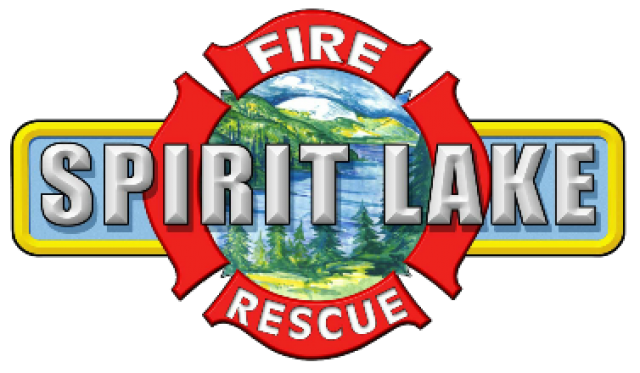
Levy Override FAQs
One levy, one purpose: serving our community.
Here you can find answers to frequently asked questions regarding the proposed levy override.
If your question is not answered here, please contact Chief Debbie Carpenter at chief@spiritlakefire.com or (208) 623-5800, option 2.
How does a levy override work?
Under a levy-based tax system, the amount of property tax levied is based on the District’s budgeted amount to provide services. This means that the District sets an annual budget which is then divided by the sum of all property values within the District’s boundaries. Per Idaho law, the District cannot increase their budget by more than 3% each budget year, plus an additional consideration for growth.
For more information on how our levy system works and how your assessed value and property taxes are calculated within this levy-based system, see Property Tax and Property Value by the Kootenai County Assessor’s Office.
You talk about the current levy being low compared to what the State of Idaho allows. What does that mean?
Idaho Code sets maximum tax levy limits for taxing districts. For fire districts, that maximum amount is twenty-four hundredths percent (.24%) to defray the cost of equipping and maintaining the district operations. This means that the State allows us to collect up to $240 for every $100,000.00 of your property’s assessed value. Currently, however, we collect just $49.46 for every $100,000.00 of your property’s assessed value, less than 21% of that maximum. Our levy rate is low because it has automatically dropped as property assessments in our district have skyrocketed. In addition, Idaho statute imposes a 3% annual budget cap on taxing districts which does not keep up with inflationary increases. The cost of operating and maintaining fire operations and medical emergency services in our district has increased by 30% over the past three years alone. The district’s current annual operating budget cannot sustain the inflated operating costs, and staffing needs to keep our firefighters safe and provide fire protection and emergency medical services to our community.
How much will this levy override cost me?
The District currently levies a tax of $49.46 per $100,000.00 of taxable assessed property value, per year. The estimated annual cost to the taxpayer of the proposed levy is a tax of $74.08 per $100,000.00 of taxable assessed property value, per year, based on current conditions (total 2024 net taxable value in the District). Thus, if the proposed levy is approved, the tax per $100,000.00 of taxable assessed property value is expected to increase by $24.62 per year. The proposed increase will be permanent.
If the voters approve this, what would the funding provide?
With a levy override, we will hire three additional firefighters, placing one on each shift. This will give us four firefighters on duty, allowing us to split the crew and staff two apparatus. This will improve service to our community in two primary ways:
Better handle multiple calls - If we transport a patient having a medical emergency, we are often gone out of district and unavailable to respond to another call for two hours or more. Having a second crew on duty leaves them available to respond to your calls for assistance. This second crew will be your Spirit Lake firefighters, not mutual aid units.
Better handle larger scale calls - We can respond to fires, motor vehicle collisions, and other major calls with two crews and two pieces of apparatus. For example, we can bring an engine and a water tender to a structure fire, or an engine and an ambulance to a motor vehicle collision. That increases our capabilities on scene in less time than it takes to get mutual aid from a neighboring agency.
Finally, the new staff will allow the district to reduce overtime costs, a considerable expense for the district.
Tell me more about Spirit Lake Fire Protection District and its capabilities.
We are a full-time, fully paid district that responds to all hazards in our 120 square mile district. Whether you call for assistance with a medical emergency, a car wreck, a house fire, or anything on the water or on the trails, we are here to help you. Our biggest challenges now are responding to the increased growth and call volume that this growth demands. Hiring an extra firefighter per shift would allow us to split our staff into two functional crews, doubling our current capability to respond to calls.
Vote on November 5!
Find election information, including polling locations, for Kootenai County on the Kootenai County Elections Office website, and for Bonner County on the Bonner County Elections Office website.
